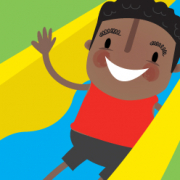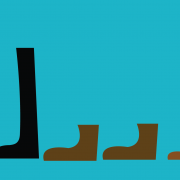Going on a God hunt
Set up your treasure hunt by hiding these clues in the locations indicated:
| Clue location | Questions and answers |
|---|---|
| Place on a tool or tool kit. |
Question: Where doesn’t God live? Answer: Acts 17:24 |
| Place on a child’s back. |
Question: Why did God make us? Answer: Acts 17:26-27 |
| Place on a jug of water. |
Question: Where is God? Answer: Jeremiah 23:23-24 |
| Place on a trunk or box. |
Question: Can God be contained? Answer: 2 Chronicles 6:18 |
| Place on or in the fridge. |
Question: What does God need from us? Answer: Psalm 50:9-12 |
| Place on a stool or an ottoman. |
Question: What attitude is God pleased with? Answer: Isaiah 66:1-2 |
| Place in or near a sink. |
Question: Who can hang out with God? Answer: Psalm 24:3-6 |
| Place on your body. |
Question: Where does God want to live? Answer: Ezekiel 36:26-28 1 Corinthians 3:16 |
| Place beside a baby or on a doll. |
Question: How did God come to earth? Answer: John 1:14 Matthew 1:23 |
Begin your hunt by reading Jeremiah 29:12-13: “Then you will call upon Me and come and pray to Me, and I will hear you. You will seek Me and find Me, when you seek Me with all your heart.
” Then pray this short prayer:
Dear God, we love You and we want to learn more about You today as we play. Thank you for listening when we pray. Amen.
Next, ask your kids, Where do you think we should start looking for God? Listen to their answers, then suggest that the Bible is a good place to get some clues about where God is. Tell your kids that you have hidden Bible verses around the house that will help them find out more about God.
Search around the house together. When you find a clue with a question, invite your kids to try answering the question themselves before you read the answer from Scripture.
Close your adventure by praying and thanking God for being a God who loves to be close to His people. Invite Him to fill your home with the joy and power of His presence.
Key concepts
God is much too big to be contained anywhere. God is like the air: we can’t see Him, but He’s everywhere! God tells us Himself that He cannot be contained.
God doesn’t need anything from us – He made us and He owns the whole world.
The one thing God does want from us is friendship. He sent Jesus to earth so our sins can be forgiven and so we can be friends with Him. The Bible tells us that God lives with those who have asked Him to clean the sin out of their lives and with those who love Him and honour Him.









